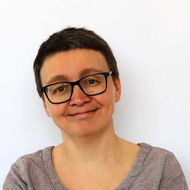HSE University-St Petersburg’s Best Teachers of 2023 Announced
This year, 60 HSE University-St Petersburg professors were named the best based on a student poll and the results of the Student Research Paper Competition. Sixteen of them have received this title three years in a row. Read on to find out more about the winners and the voting procedure.

The top HSE University-St Petersburg professors include those chosen through the anonymous student poll, graduate survey, and polling of those who have continued their research path in a PhD programme at the university. The title of 'best teacher' is also awarded to the thesis supervisors of students who have won the Student Research Paper Competition.
Ksenia Malich, architectural historian and academic supervisor of the Master's programme 'Design', was nominated in both the student poll and for being the thesis supervisor of a Student Research Paper Competition winner. The research of the student supervised by Prof. Malich took first place in the 'Best Research Paper in Art and Design' category. This is the fifth year in a row that Ksenia Malich has been named one of the university's best teachers.
Another 15 professors have won the accolade three or more years in a row. Yury Kabanov, academic supervisor of the Bachelor's programme 'Political Science and World Politics', has unanimously been voted the best seven years in a row, while Natalya Zaichenko, academic supervisor of the Master's programme 'Educational Administration', has done so for the last ten years.
Another record holder is Yana Krupets, associate professor at the Department of Sociology, who has earned nine nominations to date.
We talked to Prof. Krupets about the importance of independent student teaching quality assessment and practices that improve communication between students and professors:

— Why is independent student teaching quality assessment important?
— Student teaching quality assessment is a significant tool for receiving feedback. Students can share their honest opinions: criticise, complain, or suggest improvements. For professors, any kind of feedback is very valuable.
Personally, I see it as a direct guideline for action. I always read my students' feedback and try to take it into account while planning courses: I slightly change the content, remove or add some topics, and adjust the tasks. For instance, recently, the students shared that preparing presentations had become monotonous and that they were tired of it—I am thinking about ways to replace it now.
— What is the main task of a professor today?
— Regardless of the time or circumstances, the task of a professor is to share their knowledge and help students gain new skills. That is the most important thing.
— What makes a 'best teacher'?
— There is no role model or set of skills that a 'best teacher' must have—you can be the best in different ways.
There are no common rules, but there are influencing factors. For example, it is important that a professor feels comfortable and natural in the chosen style of teaching. The more comfortable a professor feels, the more sincere and trusting the relationships they build with their students will be.
I believe that a professor should be well versed in their subject. Moreover, they should also be interested in this subject. This is the only way to get the audience interested and present even boring topics in an exciting way.
From personal experience, I know how important transparent rules of the game are—I want to know straight away what is expected of me, where to find information and within what time frame. Being organised is an important element which helps all the participants of the educational process to plan their resources in an effective way.
Of course, it is also about communication—the ability to hear and listen, notice questions and give the necessary answers, and be involved.

